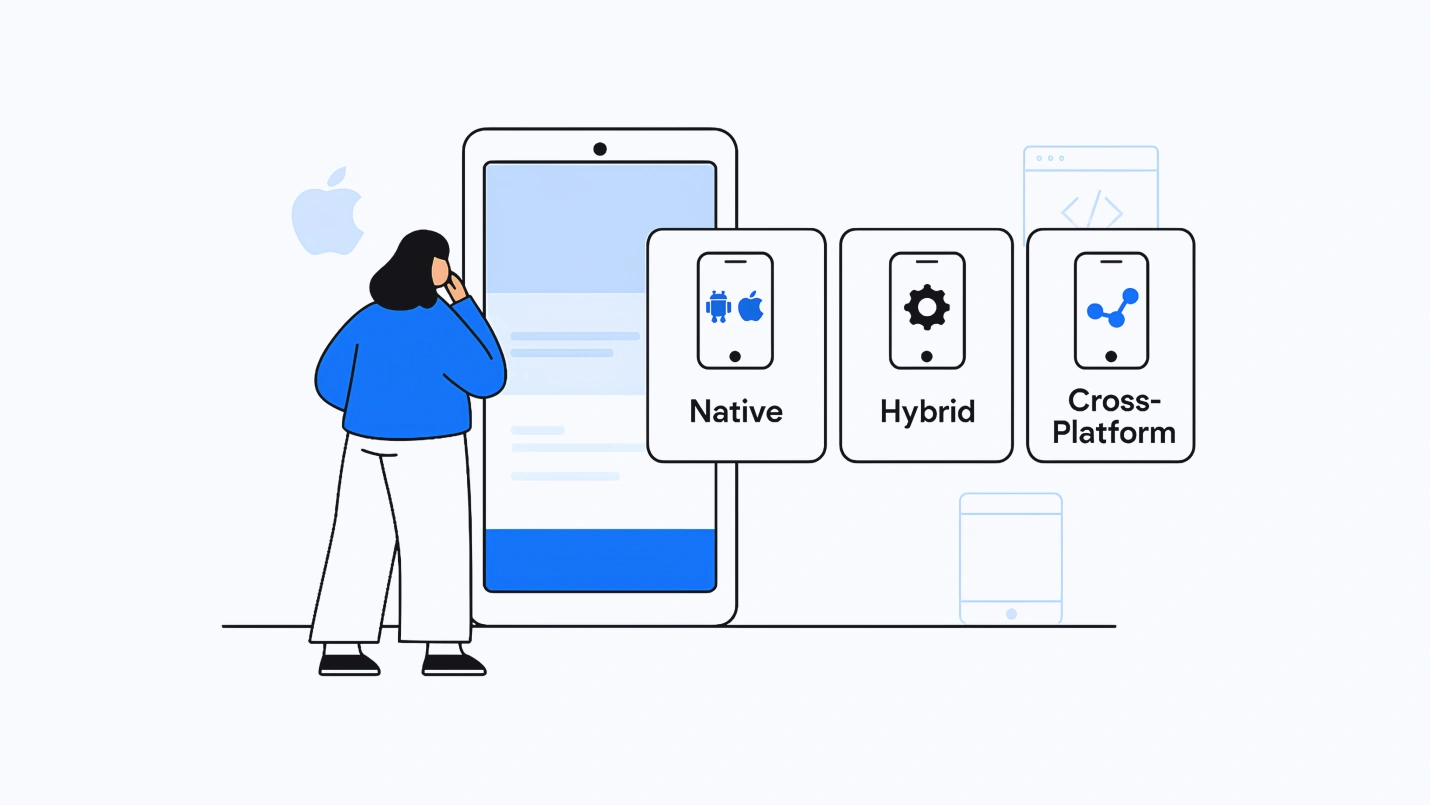With the advent of technology, our lives have become confined to digital assets. We make the most critical decisions of our lives and businesses over the Internet and mobile apps. It becomes a daunting task for companies to resist in the competitive digital landscape as countless apps currently lie on the Play Store and App Store and have limited exposure, skills, resources, and budget.
According to Statista, the annual number of app downloads worldwide will amount to 299 billion this year, up from approximately 275 billion global app downloads in 2022.
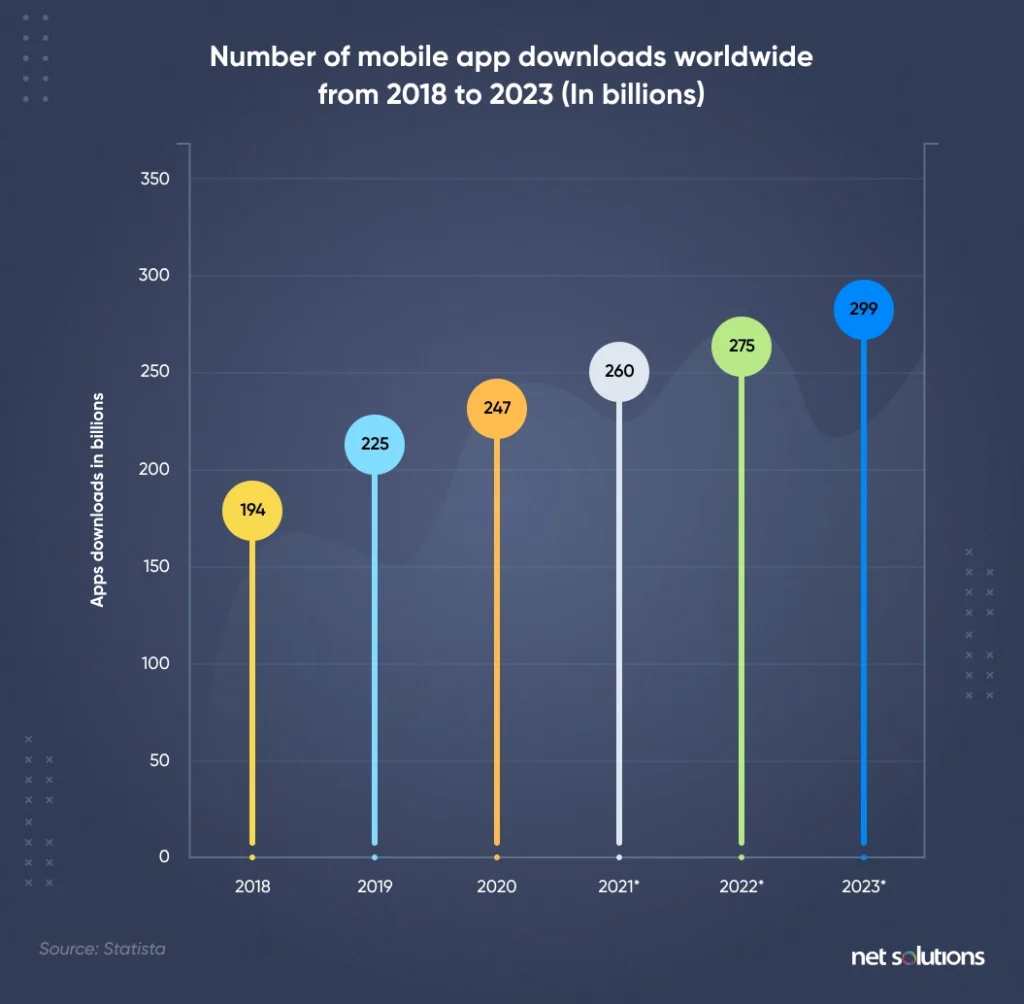
Even in 2025, mobile apps are projected to generate more than 935 billion U.S. dollars in revenues via paid downloads and in-app advertising.
Such stiff competition pressurizes business owners into emphasizing the quality, preciseness, functionalities, and other parameters that convince potential customers to bank on their services over other alternatives.
At this point, businesses usually encounter multiple dilemmas, like choosing the ideal technology to rely on for mobile app development services , the choice between iOS and Android, or the app development framework best suited to achieve broader customer engagement.
This blog will discuss the significant app development approaches – Native, Hybrid, and Cross-platform.
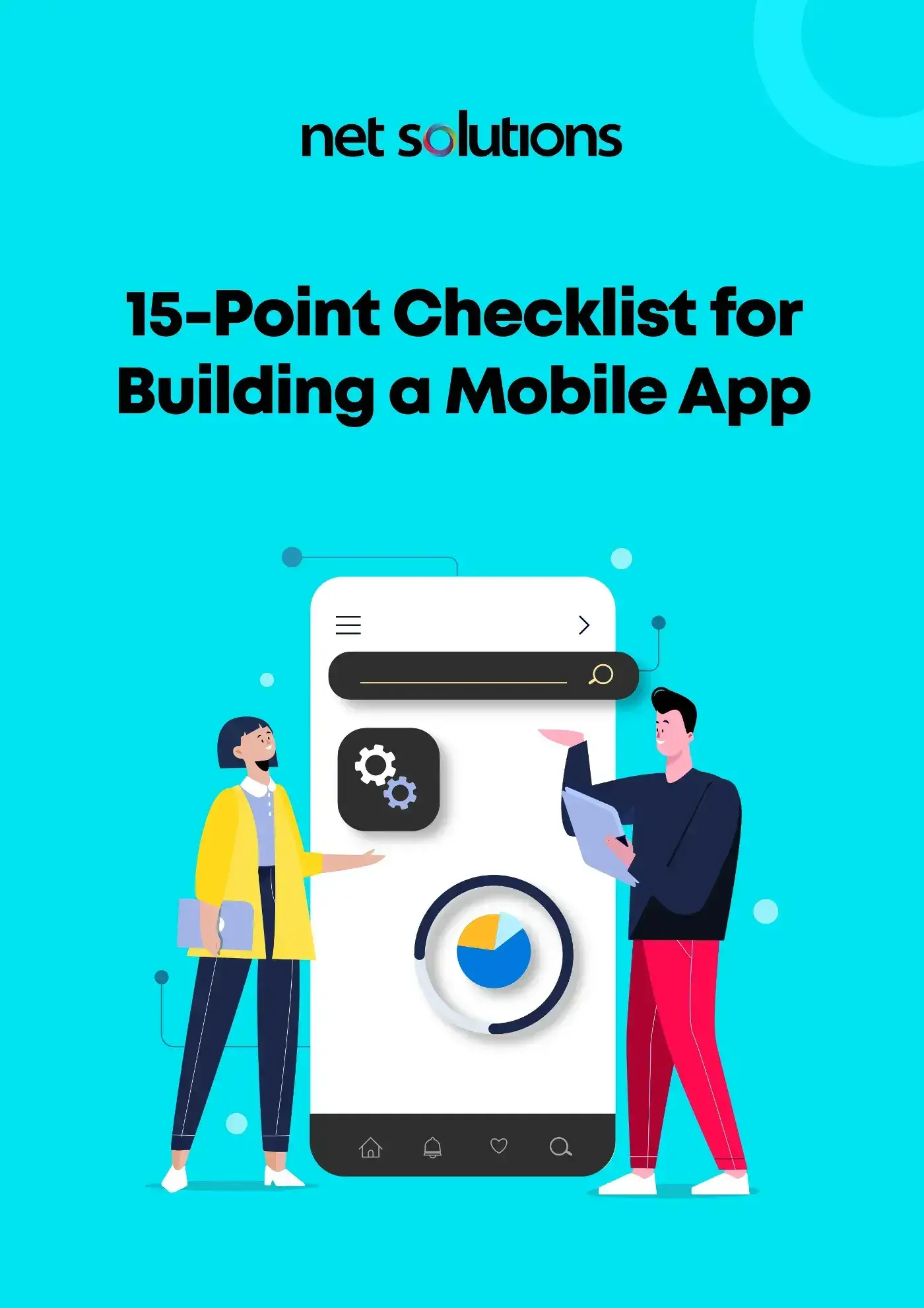
We respect your privacy. Your information is safe.
What is a Native App?
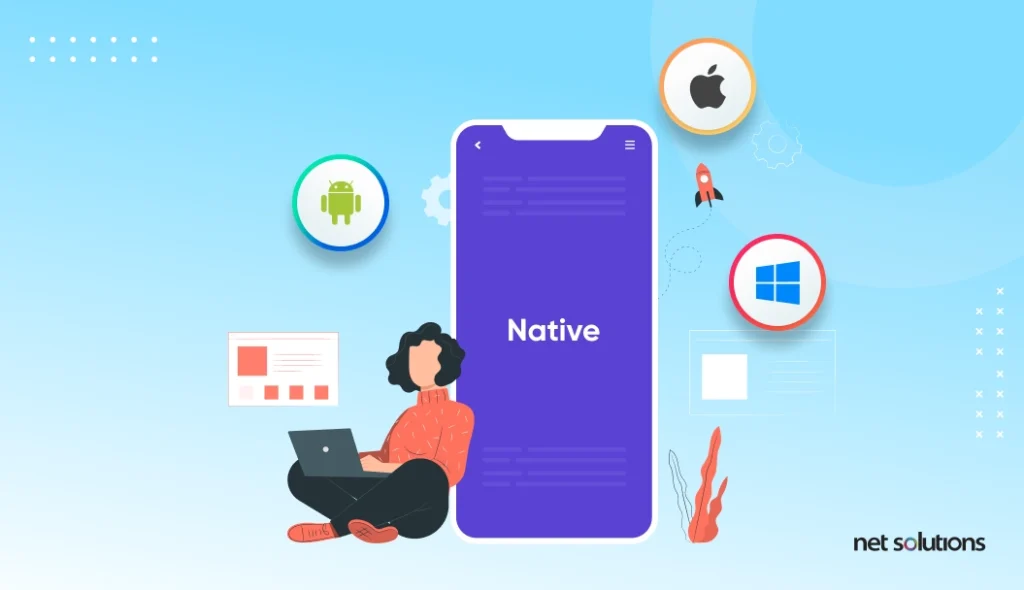
Native apps are built specifically for a particular operating system leveraging platform-specific programming languages.
Native app development is developing apps or software that operate on specific devices and mobile app platforms such as Android and iOS. With native app development, developers rely on the native-to-the-operating-system programming language to craft apps that fit one platform- whether desktops, smart TVs, smartphones, or any other advanced gadgets used in the digital space.
When developing native apps for Android, Java or Kotlin is used, and in the case of iOS, Objective-C or Swift is used. Native mobile app development is ideal when you wish to deliver the utmost user experience in terms of the appearance and feel of the application. With native app development, developers get access to add more capabilities and features to the apps as native app development can utilize primary smartphone hardware elements like GPS, Proximity sensors, camera, microphone, and so on.
Examples of Best Native App
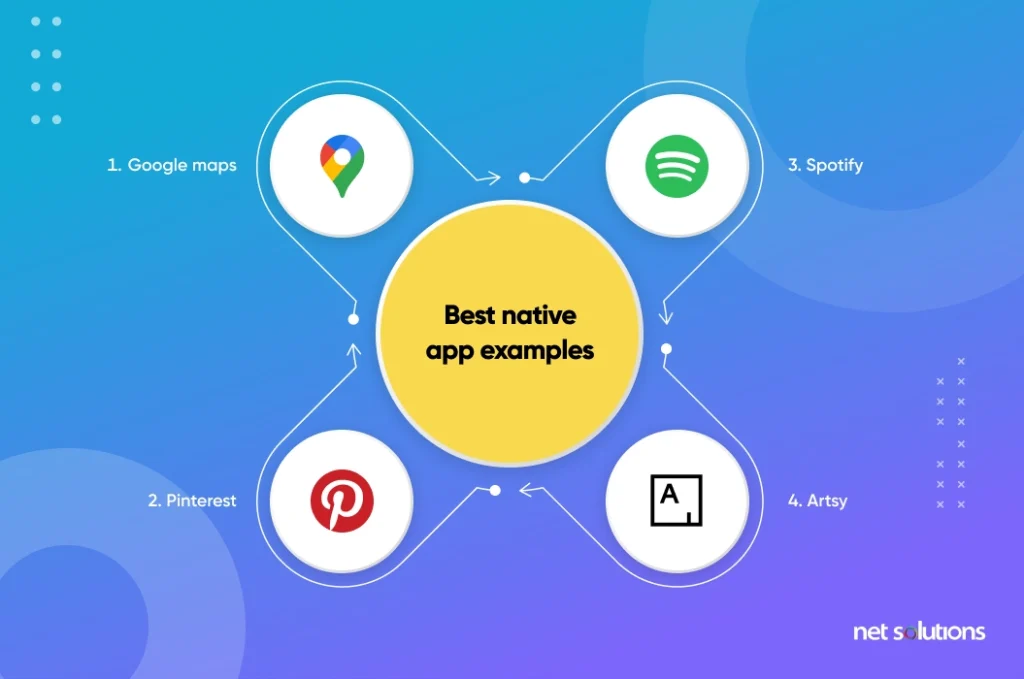
- Google Maps
- Artsy
- Spotify
Benefits of Native Apps
1. High Speed
Since native mobile apps don’t come up with complex code like hybrid and cross-platform apps, they turn out to be comparatively faster. Most app elements are rapidly displayed as they preload well in advance. Due to their high development speed and cost-effective nature, native applications are preferred by startups.
2. Offline Functionality
One of the significant native app benefits is that native apps operate flawlessly, even without internet connectivity. It ensures more convenience to the users since they access all the app functionalities during airplane mode or in an offline environment. This offline support functionality in native apps is essential for users residing in low internet connectivity areas, staying in remote areas, or having limited data availability.
3. More Intuitive & Interactive
Superior user experience is what emerging entrepreneurs can expect from native apps. Since native apps are built for a specific OS, they adhere to the guidelines, ensuring an improved experience that perfectly aligns with a particular operating system. Moreover, as native apps stick to the guidelines, it enables the users to interact with the applications with the help of gestures and actions with which they are already familiar.
4. Minimized Scope of Bugs
Managing two different codebases becomes more challenging than a single codebase in native app development. Since native apps have one codebase and don’t rely on cross-platform tools, they come up with minimal bugs.
5. Utmost Performance
Native app development helps develop apps optimized for a specific platform, ensuring high performance. Since native applications are built for a particular platform, these apps turn out to be responsive and comparatively fast. Moreover, these apps are compiled with core programming languages and APIs, which makes native apps more efficient.
6. Enhanced Security
Native app development relies on different browsers and technologies like HTML5, JavaScript, and CSS, ensuring thorough data protection on the user’s end.
Cons of Native App Development
1. No Code Reusability
If native apps are to be built separately for iOS and Android, you’ll have to code and develop the apps for both mobile operating systems. And this would demand a lot of time, effort, costs, and resources, unlike hybrid mobile apps with shared backend code or cross-platform apps with a reusable codebase.
2. High Maintenance
Native app development comes with heavy maintenance costs, which can cost you even more than the actual development costs.
3. Needs More Skills and Talent
Since native mobile apps are language-specific, it becomes challenging to find developers who can develop native apps back-to-back. In the case of native vs. cross-platform app development, you’ll have to hire two teams for native app development, while it requires only one team for cross-platform app development.
Tools for Native Mobile App Development
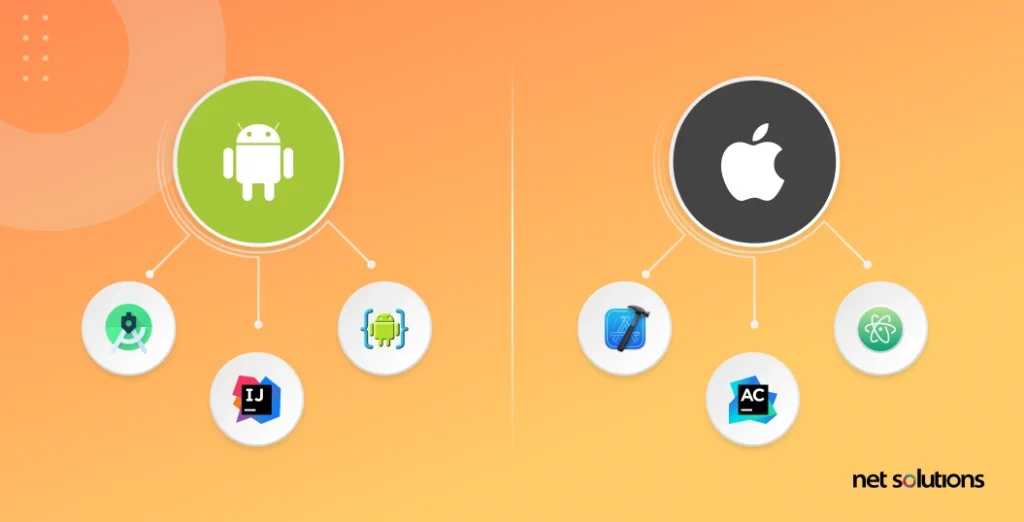
Tools for Android App Development:
- Android Studio
- IntelliJ IDEA
Tools for iOS App Development:
- XCode
- AppCode
When to Consider Developing a Native App?
- Your target audience will use your app for the first time, and you plan to impress them with the best possible app experience.
- We need to code specifically for one platform.
- Businesses are into 3D games and animations.
- You plan to grab a broad base of DAUs, target VC investors for product funding, and develop an easy-to-learn yet intuitive app.
- We need to add device-specific functionalities like GPS, camera, etc.
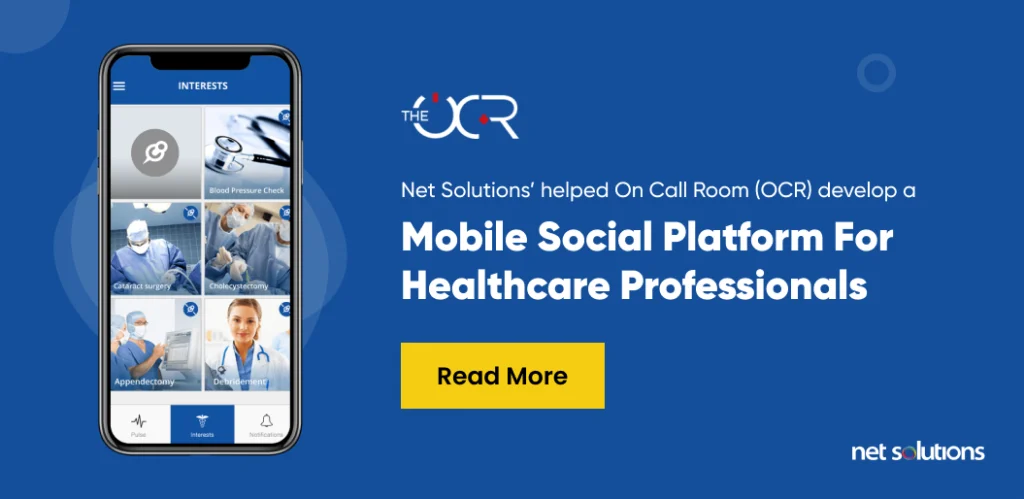
What is Hybrid App Development?
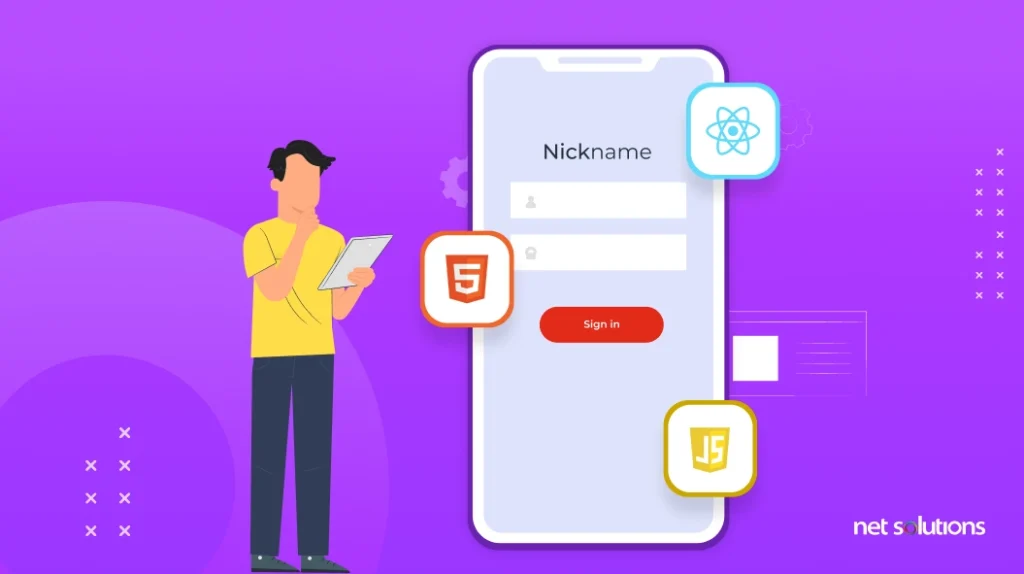
Hybrid app development is the combination of native and web solutions. In these apps, developers need to embed the code written with the languages such as CSS, HTML, and JavaScript into a native app with the help of plugins, including Ionic’s Capacitor, Apache Cordova, and so on, which enables to get access to native functionalities.
The hybrid platform comprises two components- a backend code and a native viewer, which is downloaded for displaying the functions and the backend.
The code is written only once with hybrid app development, and you can utilize the same code for multiple platforms. When you build a hybrid app, it can ensure performance and user experience somewhat near native apps. Still, hybrid app development needs to improve regarding UX and navigation patterns.
Examples of Best Hybrid Apps
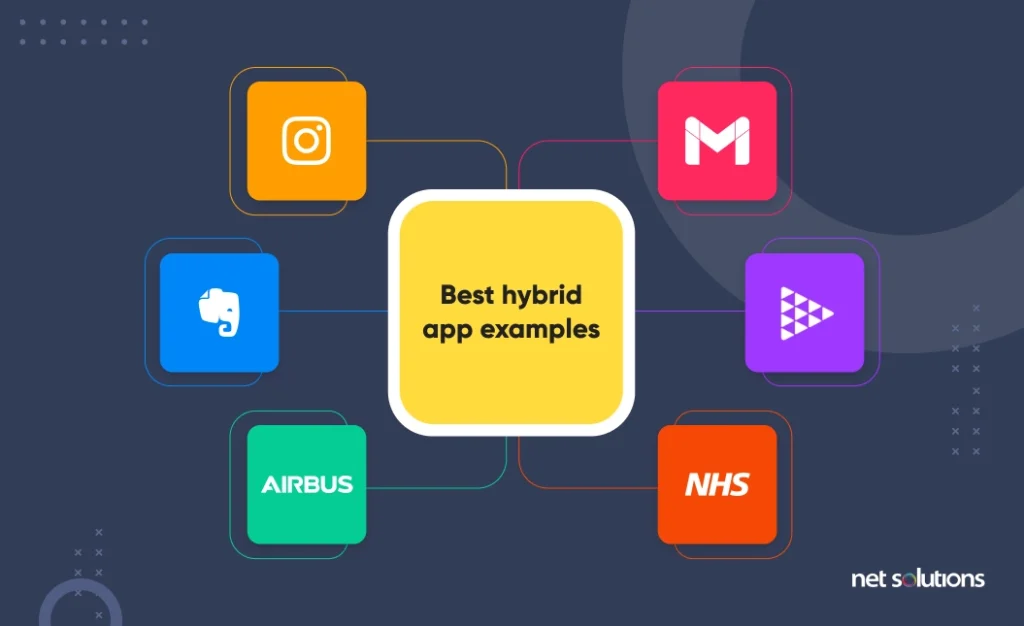
- Evernote
- Gmail
- JustWatch
- NHS
- Airbus Helicopters
Benefits of Hybrid Apps
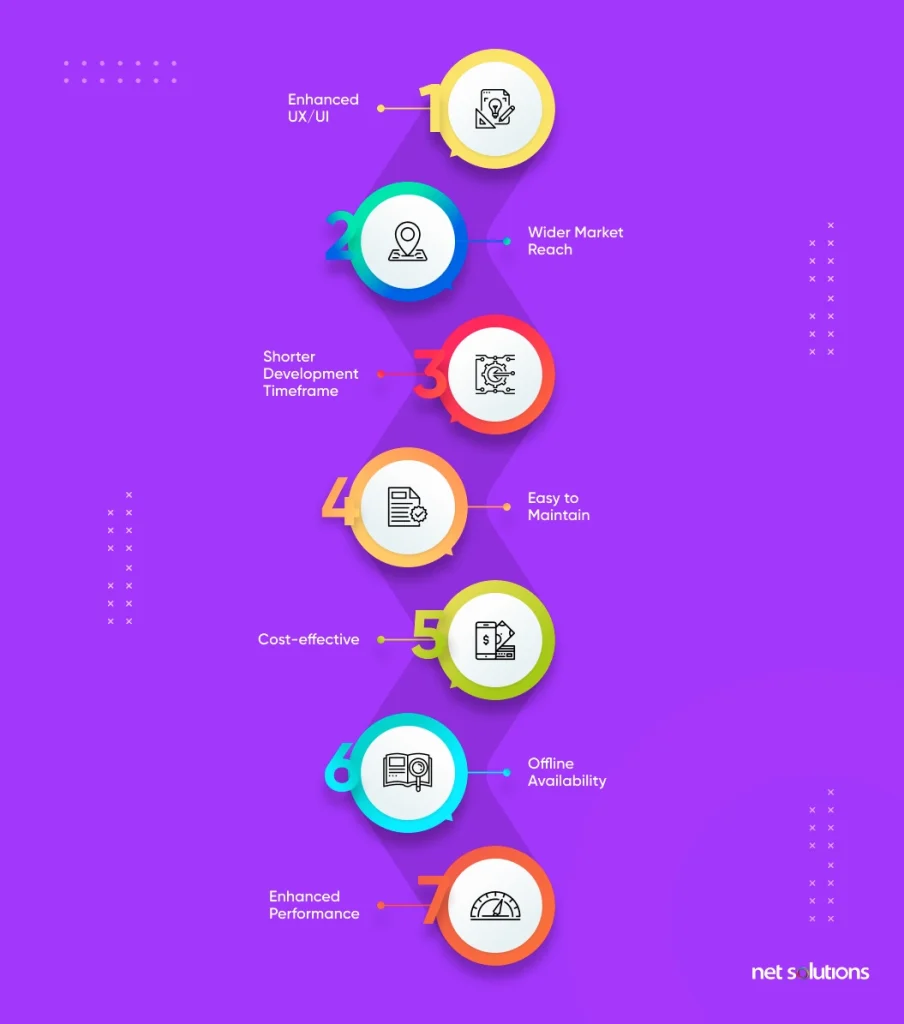
1. Rapid Time to Market
Startups usually have a mindset to ensure faster shipping of MVP. In that case, a hybrid app development framework is the ideal choice as it enables rapid development and launch of the app in the market comparatively at an early stage.
2. Easy Maintenance
Since hybrid apps are solely based on web technology, it is simple to maintain hybrid apps as compared to native and cross-platform apps that have complex coding.
3. Minimized Cost Backed & Ease of Development
Since the hybrid app development lifecycle accompanies unified development, this brings a sigh of relief for startups that have a confined budget. They don’t have to invest separately to build different versions of applications for multiple platforms. Hybrid app development frameworks enable developers to develop a single version and utilize the same for multiple platforms.
4. Improved UI/UX
Hybrid apps integrate the benefits of native and web apps while offering flawless and enhanced user experience throughout Android and iOS platforms. Hybrid application development has a lightweight hybrid app UI that enables super-fast loading of graphics and content.
Cons of Hybrid App Development
1. No Offline Support
Hybrid applications don’t offer offline support like native apps. Users must wait for an Internet connection to access the app’s functionalities.
2. OS Inconsistencies
Since hybrid apps have a single code deployed, some features are specific to a particular operating system that doesn’t work perfectly on other systems, like some Android-specific functionalities that might not work on iOS devices.
Hybrid App Development Frameworks
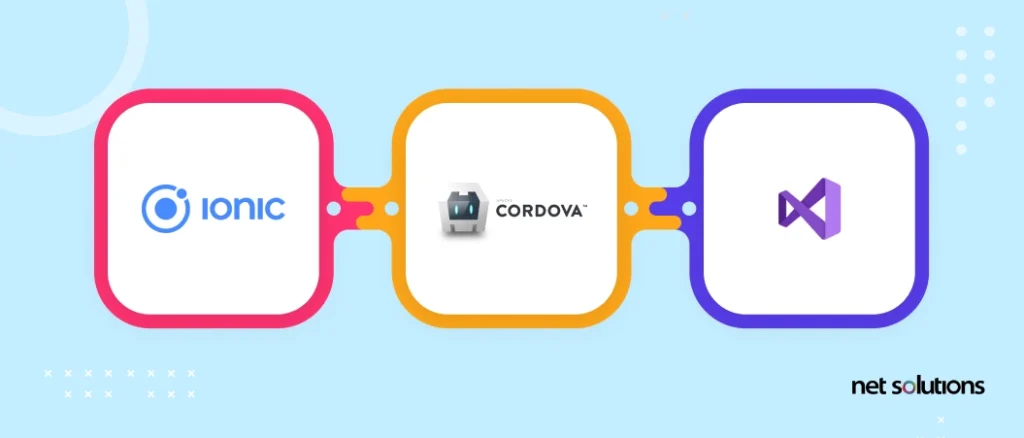
- Ionic
- Apache Cordova
When to Consider Developing a Hybrid App?
- You want to operate the app seamlessly across different platforms and don’t have sufficient time to build a cross-platform solution.
- You plan to distribute a web app throughout app stores.
- You are targeting a broader audience that uses the app on the web and mobile devices.
- Minimum Viable Product (MVP) for testing the project idea.
- You wish to avail of the device’s native features like GPS, camera, etc.
What is a Cross Platform App?
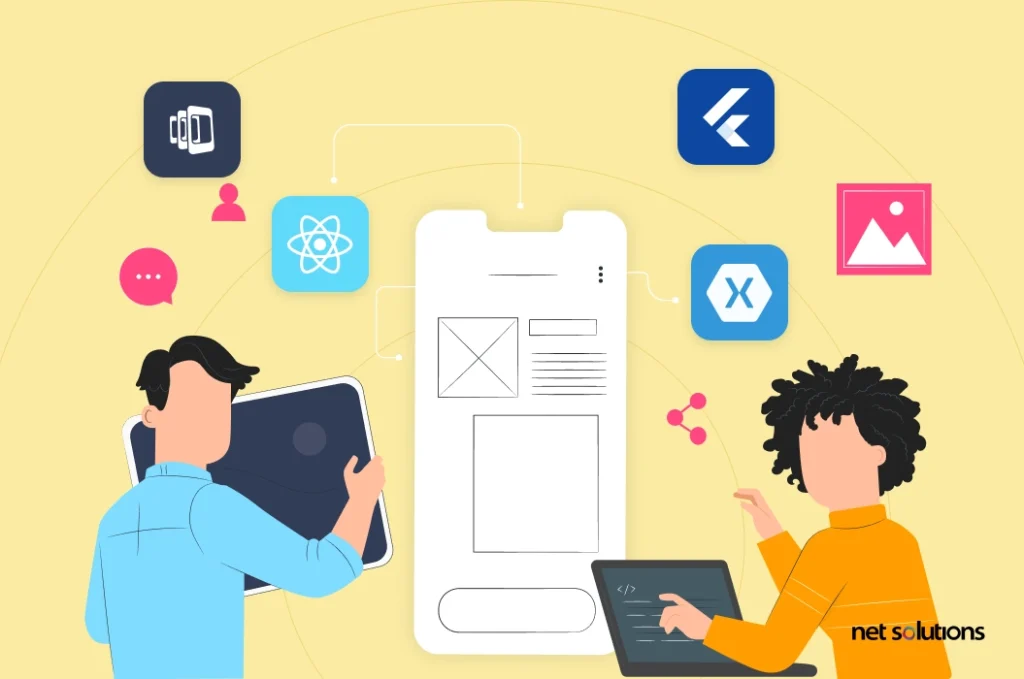
For the young entrepreneurs who assume cross-platform app development and hybrid app development are the same, let’s clear the dilemma in the first place.
Cross-platform and hybrid app development have distinct meanings and serve different purposes. Cross-platform frameworks focus on creating shareable and reusable code for building apps across different operating systems. Writing code once and reusing it on multiple platforms helps reduce app development costs and efforts.
Cross-platform apps will ensure hassle-free implementation, robust functionality, and affordable production. However, don’t expect high performance and customization with a cross-platform app development framework.
Cross-platform applications are prevalent in today’s times. All credit goes to React Native, Xamarin, and Flutter frameworks.
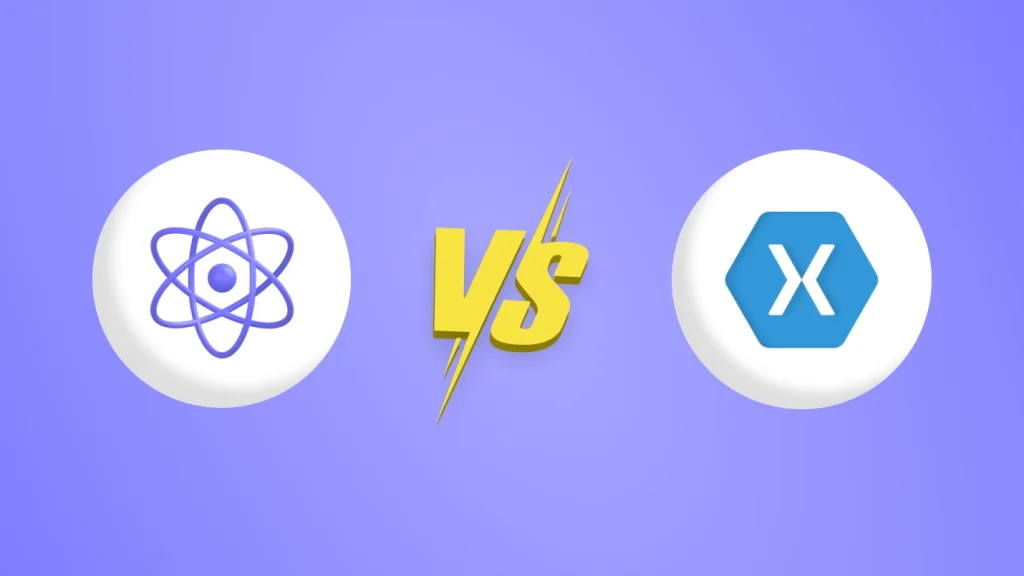
Examples of Best Cross-platform Apps
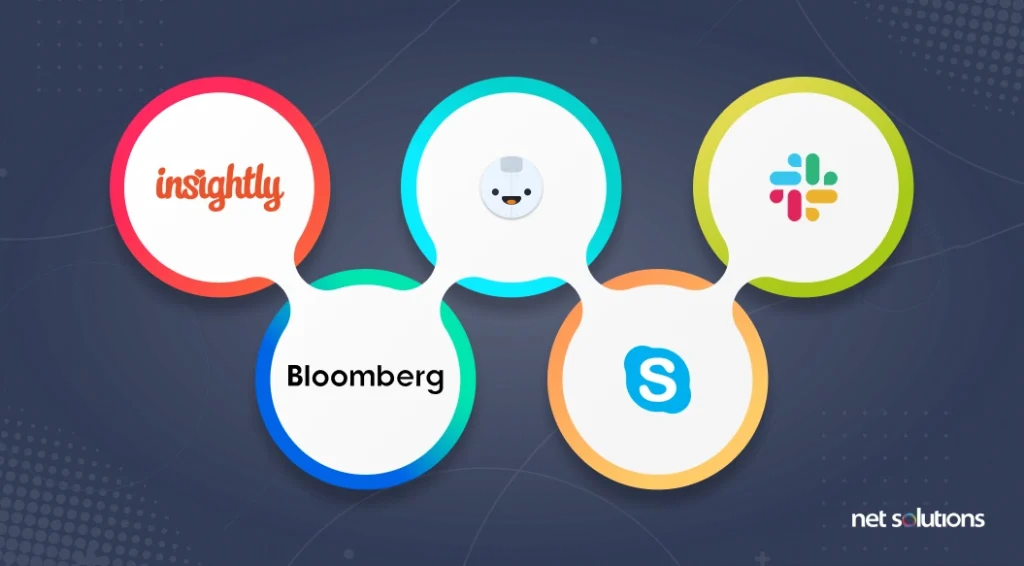
- Insightly
- Bloomberg
- Reflectly
- Skype
- Slack
Benefits of Cross-platform Apps
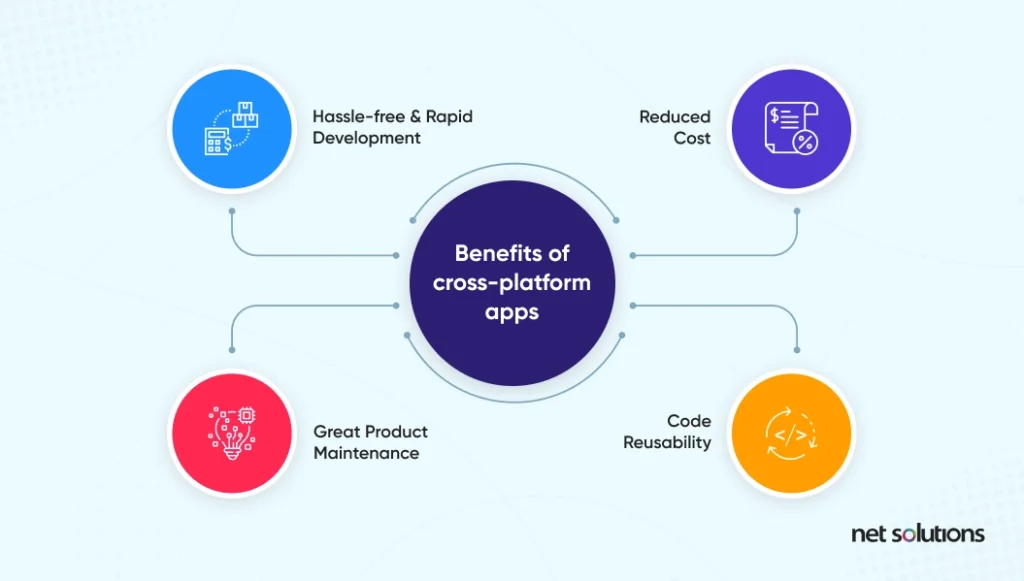
1. Hassle-free & Rapid Development
Getting reusable code backed by improved productivity and efficiency is a real bonus for developers and business owners in the long run. That is where a cross-platform app development framework gains a competitive edge over other alternatives.
2. Great Product Maintenance
Since cross-platform app development comes with one codebase, businesses can relax with flawless outputs. As there is only one codebase, it becomes easy to test and deploy fixes and upgrades and experience higher accuracy and superior quality mobile applications.
3. Reduced Cost
The Cross-platform app development framework holds the potential to support all sorts of platforms. It ensures wider market reach at a global level with increased brand popularity of startup businesses that seek rapid traction in the market. Moreover, cross-platform apps provide reduced upfront expenses.
4. Code Reusability
Regarding cross-platform apps, developers need not write unique code every time for each operating system. You can use a common codebase for transferring code to different platforms.
Cons of Cross-platform Apps
1. Complicated Development Lifecycle
It would be best if you had a team of skillful developers to develop apps that will adapt to a few platforms. You’ll have to precisely look into the minor differences between operating systems and the hardware they run on whenever implementing complex functionalities and interfaces.
2. Difficult Integrations
Developers often find it challenging to integrate cross-platform apps into local settings, and the code of HTML5 cross-platform apps is complex because of callback-style programming.
Popular Cross-Platform App Development Frameworks

- React Native
- Xamarin
- Flutter
When to Consider Building a Cross-platform App?
- You want to release a mobile application on different platforms with limited budget, time, and resources.
- It would be best if you targeted both iOS and Android app users.
- It would be best if you had faster app development.
- The app isn’t complex and doesn’t need functionalities that vary much between the platforms.
Native vs. Hybrid vs. Cross-Platform: Which One to Choose?
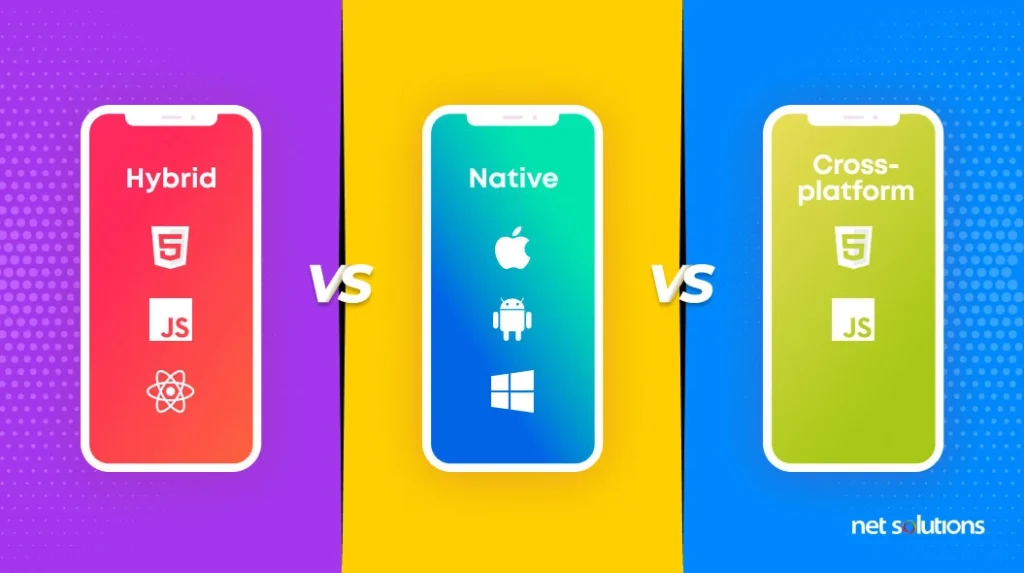
Now as we are aware of all three mobile app development frameworks, the next question that strikes the mind of business owners is which is the best approach. Whether you go for native, hybrid, or cross-platform, it all depends on the project requirements, budget, business model, target audience, demographics, and numerous other parameters.
Read More: Top 12 Mobile App Development Trends to Watch Out for in 2024.
It is difficult to pick a winner when it comes to native vs. hybrid app vs. cross-platform apps, but depending on a few parameters and the merits of each element. You can quickly figure out which is better native or hybrid app or a cross-platform app.

Considering the dropdown below, startup businesses can clearly understand native vs. cross-platform vs. hybrid and explore which app development framework best fits their business in the long run.
1. Performance
When comparing cross-platform, hybrid, and native app performance, opting for a native mobile app development approach is a smart choice. Native Android app development allows you to leverage next-gen smartphone features seamlessly, such as memory management, network optimization, and wireless access points. This ensures optimized service delivery and enhances overall app performance.
One real-life example of a tech giant complimenting native app development is Airbnb, the early adopter of React Native app framework. Analyzing hybrid mobile apps vs. native apps vs. cross-platform apps, Airbnb initially chose cross-platform to move faster and write product code once. However, their priorities and demands later evolved for better app performance and dev experience. Then they made a switch to native app development and experienced profitable outputs.
Winner: Native app development
2. Time to Market

Approximately 29.5K mobile apps are released monthly through the Apple App Store. With such stiff competition in the market, businesses are striving hard to launch their app on the App Store and Play Store as soon as possible. When comparing native apps vs. cross-platform vs. hybrid platforms for time to market, native apps consume sufficient time for their development lifecycle. At the same time, hybrid and cross-platform apps are worth considering as they come up with a faster time to market.
Winner: Hybrid & Cross-platform Development
3. Development Costs

The foremost concern of every startup business is the budget- they expect a superior yet modern mobile app that they can develop within their planned budget. In that case, a startup with a limited budget can’t afford a native app. Cross-platform app development is the ideal choice as it enables developers to write a single source code that you can further transform into desired OS-based app. Moreover, cross-platform app development demands comparatively fewer efforts and resources.
Winner: Cross-Platform App Development
4. App Security

App security has become a prime concern of business owners today to safeguard their business and customers’ data and sensitive information at all costs. According to Statista, 817 incidents of data breaches were recorded in the first half of 2022, which impacted 53.35 million individuals. These numbers are not small.
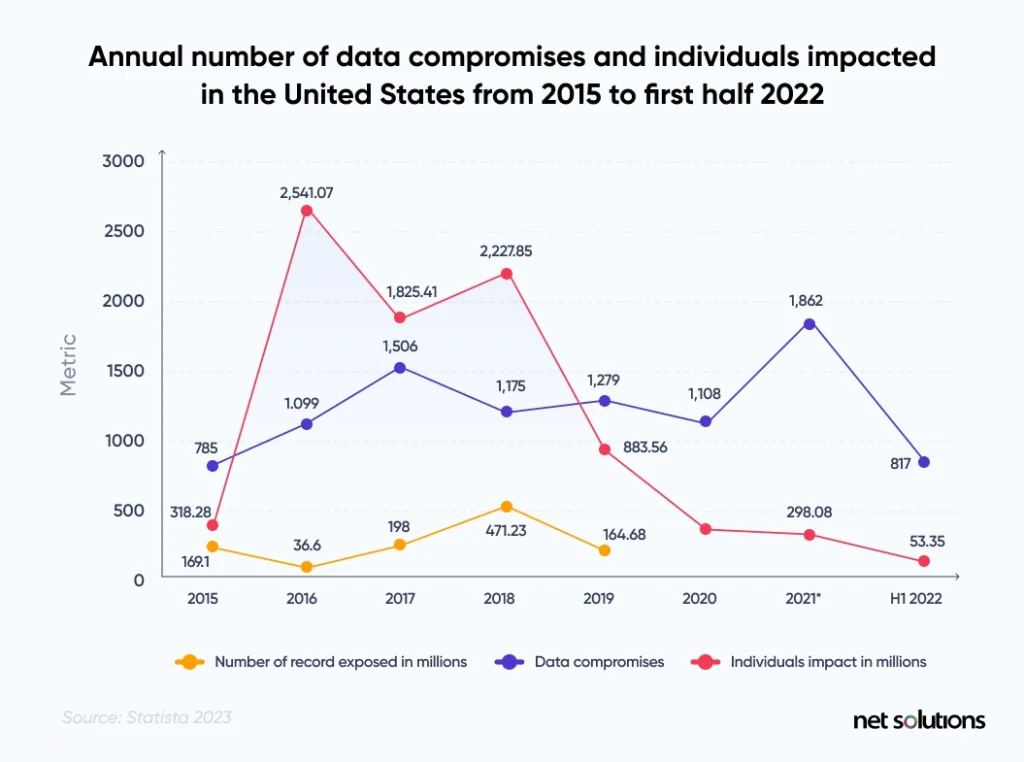
If you are in the eCommerce industry or any other business vertical dealing with customers’ confidential data, your primary emphasis is app security. Since compromising user security and sensitive data can ruin a business’s reputation overnight, it becomes essential for business owners to deliver glitch-free apps.
Regarding native apps vs. hybrid apps vs. cross-platform apps in terms of security, native apps come equipped with multiple in-built security features. These features make it easy for developers to implement file encryption and intelligent fraud detection throughout core OS libraries and ensure the utmost security in the apps. However, in the case of startups, their primary focus is on development cost and time to market; hybrid and cross-platform app development frameworks gain a higher preference. And once their apps are stabilized and famous in the market, they can eventually move forward to native apps to ensure security throughout their app.
Winner: Native App Development
5. Customization & UX
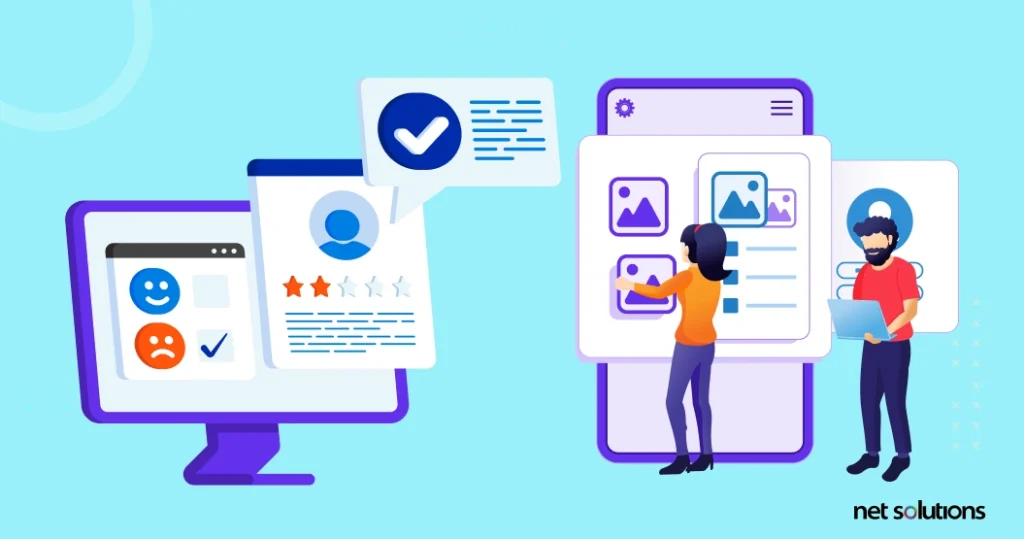
70% of customers say they have abandoned their shopping carts because of a bad user experience. 90% of smartphone users say they’re more likely to keep shopping if they have a great user experience. Modern customers have higher expectations from a brand, and getting a rich user experience throughout their app journey is the first thing they expect from a business. It indicates that the overall user retention rate solely depends on the mobile application’s user experience.
Businesses need to work on delivering customization, personalization, and improved usability. Regarding native vs. hybrid mobile app development vs. cross-platform app development, native apps hold better UI capabilities since they have preset libraries and interface components and are customizable. So, native app development is the best choice for customization and UX.
Winner: Native App Development
Frequently Asked Questions
React Native is one of the best app frameworks for developing native apps.
In the case of cross-platform and hybrid apps, the same codebase is developed for all platforms (iOS and Android), whereas native apps demand a separate codebase for iOS and Android. That is why native app development tends to be more expensive than cross-platform and hybrid app development.
It all depends on your business requirements. If you have a reasonable budget and want to go for high-performance apps, native apps are good to go. If you have a limited budget, a cross-platform app is a good choice.
Hybrid apps are better because they demand less maintenance and ensure a faster and hassle-free development lifecycle than native apps.

